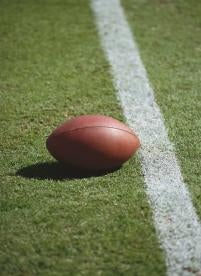The National Labor Relations Board (the Board) unanimously held, without deciding whether scholarship players are employees under the National Labor Relations Act (the Act), that Northwestern University’s football players cannot form a union because it would not promote stability in labor relations.
Whether college football players are employees with a right to organize and form unions under federal labor law remains an open issue because the Board did not decide if the Northwestern players are employees under the Act. The Board punted and left the door open for future cases concerning the unionization of college athletes: “[W]e are declining jurisdiction only in this case involving the football players at Northwestern University…. The Board’s decision not to assert jurisdiction does not preclude a reconsideration of this issue in the future.”
The Board’s decision is “primarily premised on a finding that, because of the nature of the sports leagues (namely the control exercised by the leagues over the individual teams) and the composition and structure of Football Bowl Subdivision (FBS) football (in which the overwhelming majority of competitors are public colleges and universities over which the Board cannot assert jurisdiction), it would not promote stability in labor relations to assert jurisdiction.”
Unprecedented issues were at play in this case—all previous Board cases concerning professional sports involved league-wide, not single-team, bargaining units. The Board emphasized the symbiotic relationship among the teams, the conferences and the NCAA, which makes unionization in sports unique from other industries. Such interdependence is a major reason why it is untenable to allow a single-team bargaining unit to organize under the Act while the remaining teams operate outside of federal labor laws.
Unlike professional sports, the Board cannot assert jurisdiction over the large majority of college football teams. By statute, the Board does not have jurisdiction over state-run institutions, which consist of approximately 125 FBS teams. Attempts to unionize the teams of state institutions would be subject to relevant state labor laws governing public employees. So far, at least two states have specified by statute that scholarship athletes at state schools are not employees.
This decision suggests that the unionization effort should aim higher: the organization of conferences or the entire FBS. The labor movement has already brought significant reforms by the NCAA, such as the availability of guaranteed four-year scholarships, rather than one-year renewable scholarships. As noted in a January 18, 2015 publication by the NCAA, as of August 1, 2015, schools can offer players the full “cost of attendance,” as defined by federal guidelines. According to the NCAA, “now, in addition to tuition, fees, books and room and board, the scholarship will also include expenses such as academic-related supplies, transportation and other similar items.” The employment status and compensation of college athletes have major implications beyond labor law, e.g., at some point the IRS could reconsider whether certain forms or types of athletic scholarships continue to qualify for exclusion from income under Section 117 of the IRS Code.
FBS football and all of college sports are rapidly evolving and we expect future unionization efforts and litigation on a larger scale. We will promptly update our clients on any further developments.






 i
i


